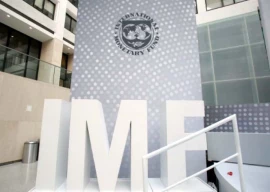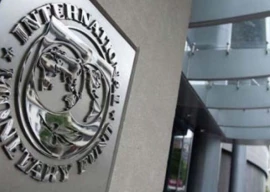
Pakistan’s federal budget deficit projection has been revised to history’s highest at Rs6.22 trillion, highlighting the unending fiscal woes that have pushed the country into a debt trap despite putting an additional burden of Rs735 billion on people in the current fiscal year.
The revision has been made in light of recent talks with the International Monetary Fund (IMF), which exposed the massive underreporting of expenditures at the time of budget presentation by the finance ministry.
Details showed that the federal budget deficit – the gap between the federal government’s expenses and income – was projected at Rs6.22 trillion for fiscal year 2022-23. In terms of the size of economy, the revised deficit is equal to 7.4% of gross domestic product (GDP).
This is a highly unsustainable level and has already pushed the country into a situation where debt restructuring seems to be the only viable option.
The revised estimate is Rs1.7 trillion, or 37%, more than that approved by the National Assembly at the start of fiscal year 2022-23. The federal budget deficit in June last year had been projected at Rs4.5 trillion.
Not only that, the budget gap is also Rs690 billion more than what the government communicated to the IMF in December. The government was initially reluctant to show the flawed picture of budget but the IMF agreed to the fiscal framework only when it got figures that appeared closer to the real data.
The Rs6.22 trillion deficit will be bridged by taking more loans from domestic and external sources, a task that the government is unable to perform due to the economic meltdown.
The figures also showed that the size of budget, which had been estimated at Rs9.6 trillion in June, will rise to Rs11.2 trillion, a new record for expenditure, which is also higher by 17%.
A key reason for the record budget deficit is the unprecedented debt servicing cost of Rs5.2 trillion, which is Rs1.25 trillion, or 32%, more than that approved in June.
Secondly, the subsidies, which had been estimated at Rs699 billion in June, are projected to swell to Rs1.2 trillion, higher by 68%.
The federal government will book the highest-ever budget deficit despite putting an extra burden of Rs735 billion on citizens till the end of June on account of higher gas and electricity tariffs and additional taxes.
In the last fiscal year, Pakistan had registered a record federal budget deficit of Rs5.5 trillion, breaching the annual target by a wide margin of Rs1.5 trillion.
The government has also revised the estimate of provincial surplus downwards to Rs559 billion, compared to the budgetary figure of Rs750 billion. As a result, the overall deficit has been projected at Rs5.7 trillion, or 6.8% of GDP.
For its programme purposes, the government has set the primary deficit target at Rs465 billion, or 0.5% of GDP, compared to the previous target of Rs153 billion in surplus.
Pakistan has been trying hard to secure a staff-level agreement with the IMF for the past 26 days. It is now facing the challenge of avoiding sovereign default.
This week, the representatives of Rothschild, a specialised advisory firm for debt re-profiling and restructuring, met with Prime Minister Shehbaz Sharif and Finance Minister Ishaq Dar.
Rothschild advised the government to avoid hard restructuring, which is painful. Instead, it urged Pakistan to go for debt re-profiling with the official and commercial creditors under the G20 Common Framework.
In its papers, Rothschild stated that debt stabilisation was unlikely in the short term given the need to address the flood consequences and finance the current account deficit.
At the same time, international rating agencies have continued to downgrade Pakistan in 2022-23 in the CCC category and the sovereign USD yield curve is now inverted, reflecting market expectations of default and ensuing restructuring by Pakistan.
The classification by the IMF of Pakistan’s public debt as sustainable or not will be one of the key outcomes of discussions between Pakistan and the IMF on the current programme review, according to a position paper the firm shared with the country’s top public offices.
“In view of the low level of available FX reserves, the debt management strategy of Pakistan may have to be revisited, to ensure the stability of Pakistani rupee and restoration of international capital markets’ confidence in the economy of Pakistan,” it advised the authorities.
Rothschild’s assessment is that Pakistan should be able to implement debt re-profiling within one year to quickly restore its international credit rating and regain access to international capital markets.
Published in The Express Tribune, February 26th, 2023.
Like Business on Facebook, follow @TribuneBiz on Twitter to stay informed and join in the conversation.








































-(1)1714378140-0/AliAminMaryam-(4)-(1)1714378140-0-270x192.webp)

1714370039-0/ojwilson-(1)1714370039-0-270x192.webp)







COMMENTS
Comments are moderated and generally will be posted if they are on-topic and not abusive.
For more information, please see our Comments FAQ